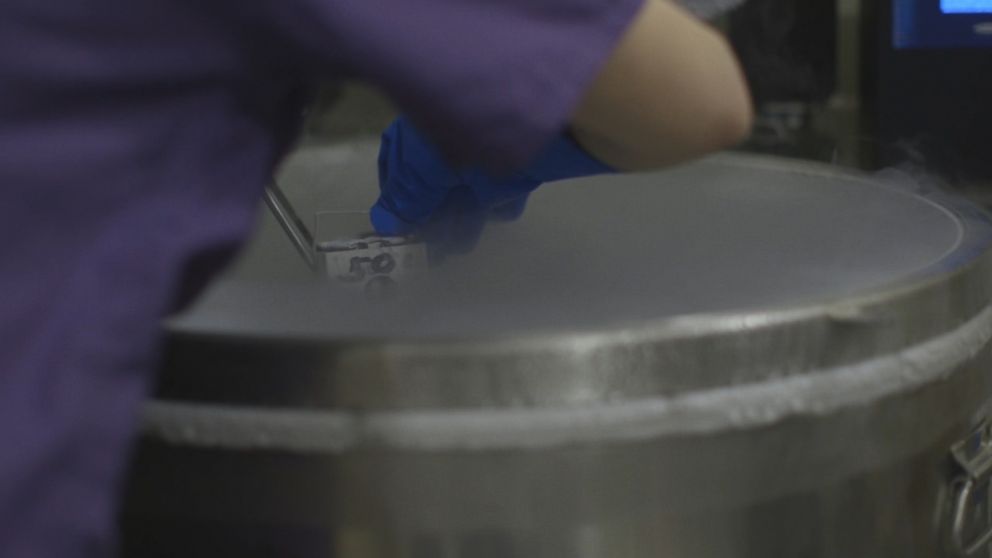How cryostorage is supposed to protect embryos like those possibly damaged at 2 fertility clinics
When two different fertility centers (in Ohio and San Francisco) have problems keeping embryos and eggs frozen at the appropriate temperature, the first thing that comes to mind is a power outage, the sort of thing that would affect a home freezer. But freezing and storing are much different when done in a lab, and when what’s being stored are the building blocks of a family’s fertility.
Here’s how cryostorage works.
It’s helpful to know how cryostorage works, and why it’s extremely rare to have such an issue.
Cryofreezing doesn’t depend on electricity at all; it depends on liquid nitrogen.
Nitrogen, at room temperature, is a gas (indeed, it’s most of the air we breathe). But when you cool it down below minus-320 degrees F, it becomes a liquid; an extremely cold liquid. As Dr. Rick Paulson, a past president of the American Society for Reproductive Medicine, told us, “cryotanks are best thought of as giant thermos bottles. They are made of stainless steel, cylindrical, with thick insulation in the walls and the bottom, and a thick insulated lid. They are filled with liquid nitrogen.”
The tanks stand about waist height and the cells they store are sealed inside the tank. “All of the eggs, sperm and embryos are kept submerged in the liquid nitrogen,” Paulson said. “If the temperature at the surface of the liquid were to increase, the liquid nitrogen would start to boil [into gas], while the temperature of the remaining liquid would stay at the very low temperature of the boiling point, until it was gone. There is no such thing as lukewarm liquid nitrogen.”
A little of the liquid nitrogen does evaporate on the surface of the liquid, at a rate of about an inch a day, even with the lid closed. For that reason, it is constantly replenished. Paulson, who is now chief of reproductive endocrinology and infertility at Keck Medicine of USC in Los Angeles, explained the process: “Our tanks have an automatic refill function. They are continuously monitored. To double check the equipment, levels of liquid nitrogen are checked daily. Even if all monitoring and automatic filling equipment were to malfunction at the same time, nothing bad would happen to the stored eggs and embryos for at least 2 weeks, and, of course, we are monitoring them daily.”
That’s what is such a puzzle for fertility experts – even if a tank was left open, it would take more than two weeks for all the nitrogen to evaporate – and any cells still covered by nitrogen would still be held below minus-320 degrees. So how did tanks in two different fertility centers have the kind of temperature fluctuation that could damage cells?




